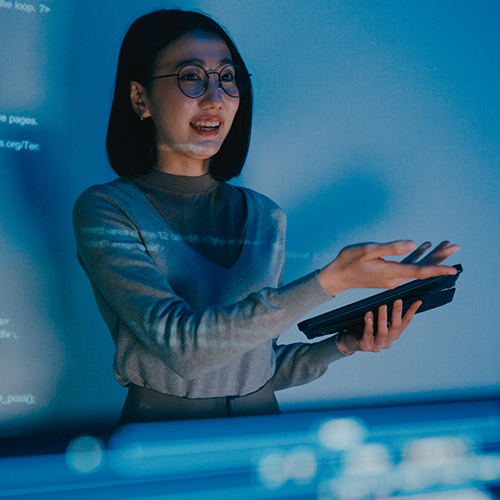25 July 2025
 New research from the University of South Australia has revealed that tertiary students’ learning habits are deeply connected to how they engage with generative artificial intelligence tools.
New research from the University of South Australia has revealed that tertiary students’ learning habits are deeply connected to how they engage with generative artificial intelligence tools.
Surveying 435 students from Australia and Canada, the study investigated how confidence, motivation, and effort regulation influence perceptions of AI-powered tools such as ChatGPT.
Researchers found that self-regulated learning skills play a significant role in whether students adopt AI as a meaningful learning aid or merely a quick solution for academic tasks.
The findings show that university students who use AI for academic purposes benefit more than those using it for work or personal tasks. They also show that student who feel confident in their abilities are more likely to use Ai to benefit their learning.
Lead researcher, UniSA’s Associate Professor Negin Mirriahi, says that the way students approach AI tools reflects their broader learning strategies.
“Some students see AI as a shortcut, using it to finish assignments more quickly, but our research suggests that those with strong self-regulation skills actually harness it for deeper learning,” Assoc Prof Negin Mirriahi says.
“It’s not just about speed; it’s about how students engage with knowledge.
“When students feel confident in their capabilities, they are more likely to engage with and effectively use technological tools.”
The study highlights a distinction between students who use AI for university studies and those who engage with it for non-academic purposes such as work or entertainment.
Those using AI for learning were more likely to find it useful, reinforcing the connection between structured self-regulation and effective AI adoption.
Assoc Prof Mirriahi says the findings should inform how universities integrate AI into education.
“Artificial intelligence is reshaping higher education, and our study shows that students who are motivated and confident in their learning benefit the most from AI tools,” she says.
“The challenge for universities is to ensure AI fosters independent thinking rather than becoming a crutch for students who lack self-regulation.
“We need to help students develop the skills to critically engage with AI, not just rely on it for convenience.”
The researchers say that universities should model AI use in classrooms, demonstrating ways that students can engage with the technology to strengthen their critical thinking and independent learning.
“We need to see more engagement with AI in university environments, so that teachers can demonstrate how AI can benefit student learning,” Assoc Prof Mirriahi says.
“This might include showcasing how AI can generate ideas, explain complex concepts, or even critique their work.
“Importantly, through direct and guided engagement, students will learn how they can confidently and responsibly engage with AI to enhance their learning experiences, without cheating.”
Study co-author, UniSA’s Associate Professor Vitomir Kovanović, says that while AI adoption is increasing, there is a risk that some students may rely on it superficially, rather than using it to refine study skills and deepen understanding.
“The concern isn’t just whether students use AI, it’s about how they use it,” Assoc Prof Kovanović says.
“If they approach AI critically and actively evaluate its responses, they can enhance their learning.
“But if AI simply becomes a shortcut to completing tasks, we may see gaps in how students develop their problem-solving skills.”
Assoc Prof Kovanović says that universities should focus on fostering self-efficacy and effort regulation in students.
“Students who have confidence in their learning abilities and persist through challenges tend to find AI genuinely useful,” he says.
“Universities must equip students with strategies to use AI effectively so that it enhances their critical thinking, rather than replacing it.
“AI is already embedded in education, and it’s only going to become more prevalent. Our responsibility is to ensure students are equipped with the right strategies to navigate it effectively.”
………………………………………………………………………………………………………………………….
The full paper is available here: Mirriahi, N., Marrone, R., Barthakur, A., Gabriel, F., Colton, J., Yeung, T. N., Arthur, P., & Kovanovic, V. (2025). The relationship between students’ self-regulated learning skills and technology acceptance of GenAI. Australasian Journal of Educational Technology.
………………………………………………………………………………………………………………………
Contacts for interview: Associate Professor Negin Mirriahi E: Negin.Mirriahi@unisa.edu.au
Associate Professor Vitomir Kovanović E: Vitomir.Kovanovic@unisa.edu.au
Media contact: Annabel Mansfield M: +61 479 182 489 E: Annabel.Mansfield@unisa.edu.au




